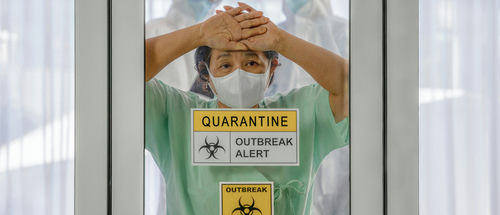New York City’s deadly Legionnaires’ disease outbreak in Harlem exposed catastrophic enforcement failures that allowed building owners to ignore safety regulations, resulting in three preventable deaths and 81 infections from contaminated cooling towers.
Enforcement Collapse Preceded Deadly Outbreak
NYC’s Health Department dramatically reduced cooling tower inspections leading up to the 2025 Harlem outbreak, conducting fewer than half the 5,200 inspections performed in 2017. This enforcement decline occurred despite the city maintaining some of the nation’s strictest cooling tower regulations under Local Law 77. The reduced oversight created dangerous compliance gaps that legal experts argue enabled building owners to neglect mandatory safety protocols without meaningful consequences.
Devastating Health Impact Reveals System Failures
The Harlem outbreak resulted in three deaths, 81 confirmed infections, and 24 hospitalizations between late July and early August 2025. Health officials discovered that 11 of 43 inspected cooling towers tested positive for Legionella bacteria, representing a 25% contamination rate. Acting Health Commissioner Dr. Michelle Morse declared the outbreak under control after implementing emergency remediation measures, but the high positivity rate exposed widespread noncompliance with existing maintenance requirements.
Legionnaires’ disease develops from inhaling contaminated water droplets from poorly maintained cooling systems. The 12-14 day incubation period meant infected residents faced severe pneumonia symptoms weeks after initial exposure. Vulnerable populations including older adults and immunocompromised individuals bore the greatest health risks from this preventable outbreak caused by regulatory enforcement failures.
Strengthened Rules Target Compliance Gaps
NYC’s proposed rule amendments will require all Legionella testing to be performed by New York State Environmental Laboratory Accreditation Program certified laboratories starting next spring. The changes also expand penalties for building owners who fail to properly report inspection and sampling results. These enhanced enforcement mechanisms address criticism that existing fines were too low to deter noncompliance among high-value property owners.
NYC proposes stricter rules to combat Legionnaires’ disease as Harlem outbreak sparks concerns https://t.co/OogvAGpMFm pic.twitter.com/4gIVZVXANy
— New York Post (@nypost) August 11, 2025
State Senator Cordell Cleare introduced legislation S.8472 requiring biannual cooling tower certifications and increased penalties for reporting violations. This parallel state effort would institutionalize higher maintenance standards citywide and provide additional enforcement tools beyond current NYC administrative code provisions. The legislation aims to prevent future outbreaks through systematic accountability measures rather than reactive responses.
Sources:
New York State Senate S.8472 (biannual certification; increased penalties), introduced Aug 6, 2025

